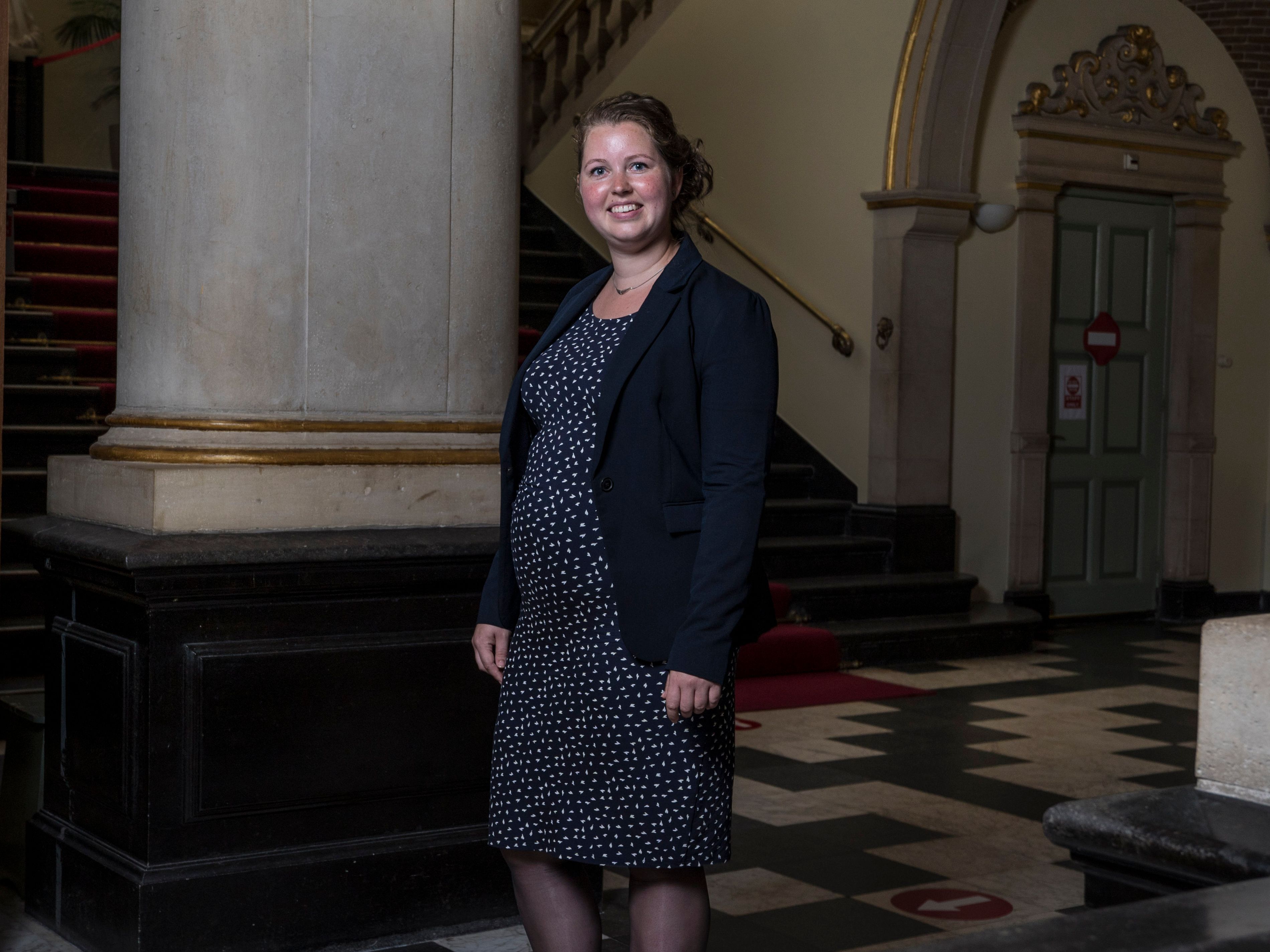Defending a PhD thesis during Corona times
| Date: | 15 December 2020 |

Aline Seepma was one of FEB’s PhD students affected by the covid-19 measures taken by the Dutch government. Although this created uncertainty for her, in the end there were also some positive side effects.
“I handed in my PhD dissertation at the beginning of March 2020 and scheduled my defense for the 2nd of July 2020. Soon after handing in my dissertation the first measures were taken: closing down University buildings and only facilitating defenses online. I realized that I, for sure would have to let go the idea of having a big ceremony and celebration with all my family, friends and colleagues over a diner and party. It was strange to work from home, not seeing any colleagues and not having small talks on preparing for the defense. The biggest downside was the uncertainty the situation gave on whether and under what circumstances I would defend my thesis on the planned date.
I was relieved that on the 2nd of July the circumstances made it possible to defend my PhD in the Aula of the Academy Building, albeit with at most thirty people present. Due to the well-organized online facilities for conference calls and the livestream a lot of people were able to see my defense online. The nice thing about this was that, in the end, more people were able to attend my defense (online) compared to regular pre-Corona defenses where physical presence would have been a prerequisite. All in all, despite the unusual situation, I did have a wonderful day, with my closest family and friends present and many following the ceremony via a livestream“
Summary of the thesis
A seamless, sustainable and trustworthy criminal justice system is essential to a country’s rule of law and good governance. Such a criminal justice system consists of criminal justice organizations, like the police, public prosecution, and the court. The effective work of these core organizations relies on information exchange, collaboration and process alignment. However, reaching those can be challenging. One of the main difficulties in achieving collaboration and alignment relates to the multiple, sometimes contradicting, performance objectives of these different organizations.
Despite their distinct tasks, responsibilities and resources, the police, public prosecution and court act as a supply chain. The output of one organization serves as input for the next organization, and together they deliver a final product.
Aline Seepma explores how supply chain management is applied in criminal justice. She studied the interactions between these three core parties throughout the detection, investigation, and jurisdiction of high-impact crimes, such as burglaries, robberies, and violent crime.
Seepma concludes that planning often assumes infinite capacity, leading to huge delays and large stacks of cases remaining on the shelf. The capacity of the parties within the supply chain is limited, but a better alignment allows the supply chain as a whole to perform much better. Also, while the parties extensively use information and operational integration, they hardly use relational integration mechanisms, such as establishing strategic links based on trust, commitment and a long-term vision. Too often, criminal justice professionals take an independent standpoint regarding scheduling, although some tentative change is already happening.
Through her research, Seepma identifies the avenues of improvement for the criminal justice supply chain, demonstrating that it is possible to successfully implement integration without compromising the goals, interests and legal independence of the intervening parties.
Recently one of the chapters of the thesis entitled “On publicness theory and its implications for supply chain integration: The case of criminal justice supply chains” is accepted in the Journal of Supply Chain Management (co-authored with Dirk Pieter van Donk and Carolien de Blok).

